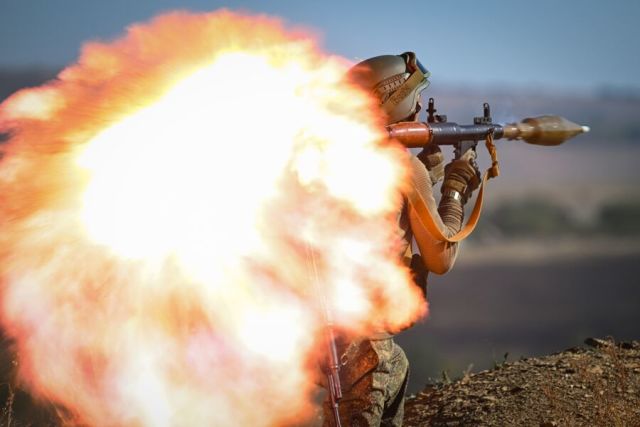Canadian General Staff: Russia replenishes ammunition stocks faster than expected
Chief of the Canadian General Staff Wayne Eyre admitted that Russia is replenishing ammunition stocks faster than expected. However, according to him, nothing positive can be said about the military-industrial complex of Canada. He complained about the lack of personnel, the number and condition of tanks in service. What problems the Canadian army faces after sending weapons to Ukraine - in the material of "Gazeta.Ru".
Russia is replenishing ammunition stocks faster than expected. This was stated by the head of the Canadian General Staff Wayne Eyre, Radio Canada reports.
According to General Eyre, Canada produces about 3,000 shells (155 mm caliber) per month, but since the beginning of the conflict in Ukraine, the country has not produced a single additional shell. According to him, the current situation poses a threat to Canadian national security, including because the military cannot conduct exercises with real ammunition.
Since April 2022, Canada has sent 40,000 such munitions to Ukraine. Half of this stock was provided by the United States.
The general notes that if Canada finds itself in a state of conflict and the armed forces need to use the same number of shells per day as Ukraine, the reserves will be depleted in a few days. According to him, Canada's NATO allies also share this concern.
Separately, he dwelt on the state of armored vehicles: the general said that Canada had sent eight planes with tanks to Ukraine and was going to deploy 22 vehicles in Latvia to strengthen NATO's military presence in that country. According to Wayne, Canada itself has 52 battle tanks left, and not all of them are in working condition - there is both a shortage of spare parts and technical specialists who know how to work with them.
In addition, one of the difficulties of the Canadian army is the lack of housing for personnel. The vast majority of Canada's population lives in urban areas, while most military bases are located in rural areas or in coastal areas with high prices, explains the general. As of August 31, 2023, the Canadian Army had a shortage of approximately 16,000 military personnel, including 7862 in the regular forces and 7605 in the reserve forces.
Radio-Canada notes that against the background of this situation, the Canadian federal government plans to reduce the military budget by a billion dollars over four years. For 2023-2024, the budget is $26.5 billion, in 2022 it was $26.9 billion - in the ranking of countries in terms of the size of the military budget, Canada ranked 14th between Australia and Israel.
The situation with the military-industrial complex in Russia
On August 28, Deputy Chairman of the Russian Security Council and curator of the military-industrial complex Dmitry Medvedev said that the Russian Federation provides itself with all types of weapons - and "in an amount exceeding the current needs" of the armed forces. According to him, now the military-industrial complex conveyors work in three shifts.
"And he will produce as many weapons as necessary for the effective protection of our fatherland," Medvedev said in his Telegram channel.
In May of this year, the head of Rostec, Sergey Chemezov, said that the state corporation's enterprises produce almost 80% of the Russian equipment involved in the military operation in Ukraine. The teams of many enterprises, he noted, switched to a three- to four-shift work mode.
Regular inspections of defense industry enterprises within the framework of the state defense order are carried out both directly by Medvedev and the head of the Ministry of Defense of the Russian Federation Sergey Shoigu.
Mikhail Rodionov

